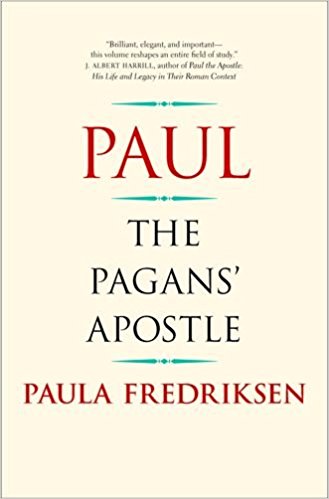Because I have dealt in great detail with the numerous errors of a Schweitzerian approach to Pauline (and Jesus’) eschatology in my Jesus, Paul, and the End of the World, I don’t need to reiterate all that here. All that needs to be said is that Paul believed in the possible imminence of Christ’s return within his lifetime, but he did not affirm that ‘the last hour’ was already necessarily knocking on the door. Paul was not a date setter and he had no specific period of time in mind before the end. It could come sooner, it could come later.
Since the Christ event of death and resurrection, the eschatological age had already been inaugurated, that meant ‘the time has been shortened’ (as he puts it in 1 Cor. 7), or ‘salvation is nearer now than when we first believed’ (Rom. 13.11). In both cases Paul is talking about what the previous eschatological event has done to things. It has accelerated things, so that Christ could return sooner than many expect. Phil. 4.5 read in context involves an allusion to the Psalms, and the subject is the spatial not temporal nearness of the Lord— he is near to those who approach him with earnest prayer. Or again 1 Cor. 10.11 tells us that the ends of the ages have already come upon Paul and others. He is not referring to an end that is merely coming soon. And notice the use of the word ends plural. The goals, the telos, the aims of all the ages are already coming to pass through the Christ event. The form of this world is already passing away. None of these comments are about what is about to happen.
When Paul chooses to actually talk about the second coming in 1 Thess. 4-5, what he actually affirms is that Christ will come like a thief in the night, reusing a metaphor Jesus himself used, one which also shows up in Revelation. The concept is that the thief comes at an unknown, unexpected and surprising time, so the key is to always be ready.
What then of Rom. 16.20? Does it refer to ‘soon’ crushing Satan under Roman Christians’ feet? Remembering that Paul says he must: 1) go to Jerusalem first, then 2) come to Rome, then 3) be sent on his way to Spain by the Roman Christians, thus it is likely wrong to translate en taxei to mean ‘soon’. Indeed, the word taxei from which we get the word ‘taxi’ simply means quick, or in an adverbial phrase with en modifying the main very it means quickly’, telling how it will be done, not when.
Paul is simply saying that God has well in hand the problem and will dispatch the Devil quickly, the audience need not worry about him. Paul, like Jesus who plainly says in Mk. 13.32 and para. that he doesn’t know the timing of the second coming, only the Father does, was not into date setting. He believed that the eschatological age had been inaugurated and that Christ was definitely coming back, and it is the certainty of the event, coupled with its ‘possible imminence’ that drives his remarks. The form of this world was already passing away already since the resurrection of Jesus, but how long it would take, and when Christ would return no one knew, nor did they speculate.
Schweitzer was simply wrong that Jesus thought the end was going to come during his own ministry, and then when that didn’t happen he went to Jerusalem to ‘turn the wheel of history’ and force the end to come through his martyrdom and resurrection. Of this sort of historical miscalculation, the historical Jesus says nothing at all. It is not that Jesus and Paul, bless their hearts had miscalculated, it is that Schweitzer had done so, though perhaps it was a good thing in his case, because as a result he quit academic theology and went to African and did some good medical missionary work.
In the end, Paula is wrong that the earliest Christians, or at least the ones who wrote the NT, were convinced that their generation would necessarily be the only generation of Christ followers before he returned. It is not the timing of the end of the endtimes, but the fact that the end had already begun in the Christ event and they did not know how soon the devoutly to be wished consummation would come that explains what we find in the NT. The sense of apocalypse or eschatological age now with its urgencies is one thing. The notion of being sure of when ‘das ende’ would arrive is another.













